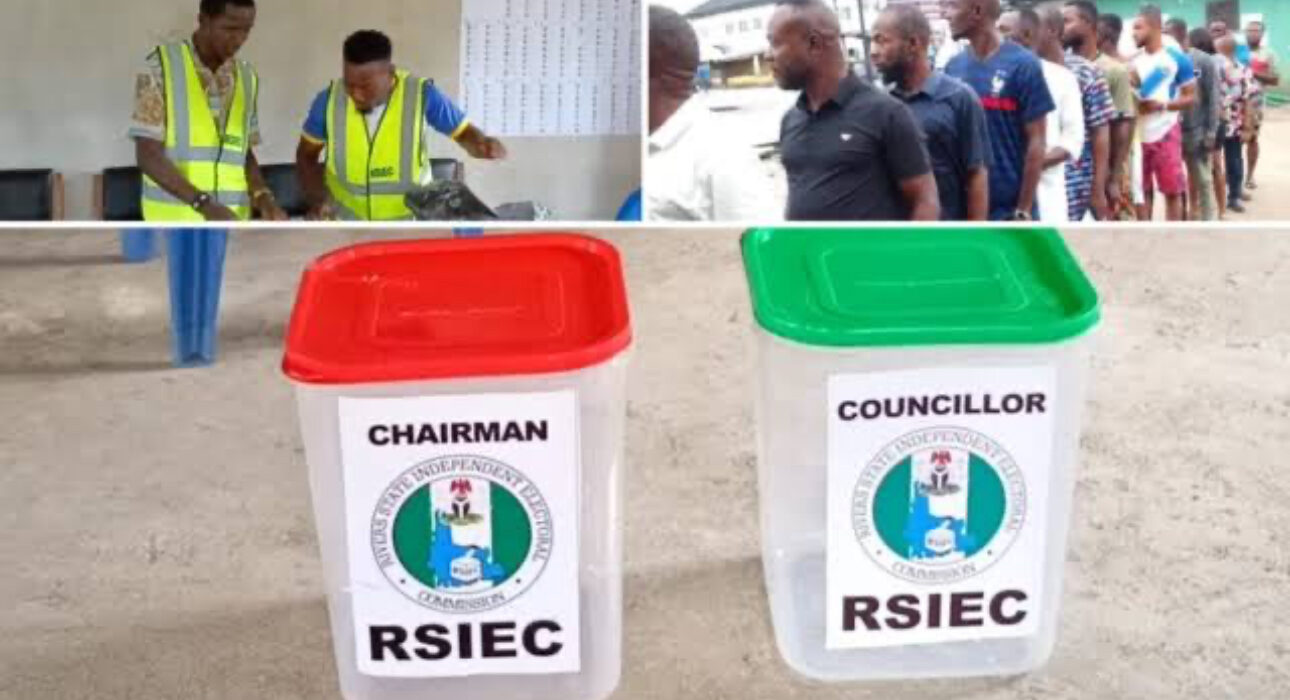APC Wins 20 Councils, PDP Takes 3 in Rivers LG Elections Under ‘Collabo’ Arrangement

The All Progressives Congress (APC) has emerged victorious in 20 local government councils while the Peoples Democratic Party (PDP) secured three, following the Rivers State local government elections held on August 30, 2025.
The polls, conducted under the supervision of the Rivers State Independent Electoral Commission (RSIEC), came after the Supreme Court nullified the October 2024 elections.
Administrator Ibok-Ete Ibas described the exercise as peaceful and a significant step toward restoring grassroots democracy in the state.
Behind the smooth conduct of the elections, however, was a political compromise widely known as the “collabo system.” The arrangement, reportedly negotiated between factions loyal to Minister of the Federal Capital Territory Nyesom Wike and suspended Governor Siminalayi Fubara, allocated 20 chairmanship positions to APC and three to PDP before the polls.
The unofficial results reflect this division of power, with APC sweeping most LGAs and PDP holding ground in its designated strongholds. Critics have questioned the credibility of the figures, describing them as predetermined rather than competitive.
Breakdown of Reported Results
• Ahoada East – APC – 84,125 votes
• Asari Toru – APC – 56,383 votes
• Ikwerre – APC – 62,746 votes
• Bonny – APC – 13,543 votes
• Degema – APC – 61,536 votes
• Eleme – APC – 77,452 votes
• Etche – APC – 100,649 votes
• Gokana – APC – 96,478 votes
• Khana – APC – 156,027 votes
• Ogu Bolo – APC – 36,374 votes
• Opobo Nkoro – APC – 38,822 votes
• Okrika – APC – 82,285 votes
• Emohua – APC – 115,380 votes
• Akuku Toru – APC – 63,593 votes
• Obio/Akpor – PDP – 328,888 votes
• ONELGA (Ogba/Egbema/Ndoni) – PDP – 51,051 votes
This breakdown reflects the agreed allocation, with APC claiming 20 councils overall and PDP three.
Observers have acknowledged the relative peace that characterized the process, contrasting it with the violent history of Rivers State elections. Nonetheless, questions remain about the democratic integrity of a system where outcomes appeared to be predetermined by political negotiation rather than the ballot.
With the new chairmen now set to assume office, the spotlight turns to service delivery and governance at the grassroots level, as residents watch to see whether the promises of stability will translate into tangible benefits.









